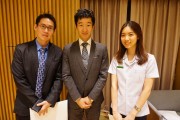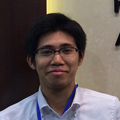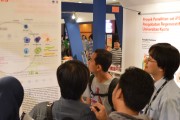< Outline >
At Kyoto University ASEAN Center, an administrative staff stays based on short term program for administrative Staffs called “John Mung Program”, Kyoto University Grobal Frontir Project for Young Professionals. This program provides an opprotunity for young staffs to experience international affairs and to brush up language skills.
For further details, please refer to the folloing link, John Man Program; Global Frontier Project for Young Professional.
<Administrative Staffs>
|
Account Division, Graduate School of Engineering (2023.4-2024.3) |
|
Student Affairs Division, Graduate School of Engineering |
|
General Affairs and Planning Division, Graduate School of Medicine (2019.4-2020.3) |
|
Account Division, Southwest District of Yoshida Campus (2018.8-2019.3) |
|
International Affairs Division, Graduate School of Medicine (2017.4-9) |
|
International Education and Student Mobility Division (2017.10-2018.3) |
|
International Affairs Division, Graduate School of Medicine (2017.4-9) |
|
Medical Affairs Division, Kyoto University Hospital (2016.10-2017.3) |
|
Medical Service Division, Kyoto University Hospital (2016.4-9) |
|
General Affairs Department(2015.9-2016.3 |
|
Account Division, Southwest District of Kyoto University(2015.4-9) |
| Medical Affairs Division, Kyoto University Hospital(2015.1-3) | |
| Overseas Affairs and Planning, Southern District of Yoshida Campus(2014.12-2015.3) | |
|
Accounting Center, Graduate School of Engineering, Katsura Campus(2014.9-12) |
| Account Division(2014.7-9) | |
|
Research Promotion Division(2014.5-7) |
< the Voice from former staffs>
|
|
Name :Ai Nakakubo |
|
【Operation in Bangkok and Inpression】 |
Before going to Bangkok, I was working in the Medical Affairs Division of Kyoto University Hospital. I didn’t have knowledge of international affairs, general affairs or accounting. However, I could enjoy my three months’ stay in Bangkok thanks to the support of the Director, URA, and many other people. I was worried about whether I could contribute to Kyoto University or Kyoto University ASEAN Center. Actually, sometimes I felt my knowledge and ability is lacking. At the same time, I realized my strong points and got confidence through various experiences in ASEAN Center. As I could get used to Thai meals, I had no trouble to adapt to the life in Bangkok. There were many chances to meet people in and out of the university, and so I could have precious personal connections. As for language study, I took both Thai and English classes at a language school. I became able to communicate with using easy Thai. After returning to Japan, I began working for Kyoto University Hospital again. Recently, the chances to support foreign patients increased, as I moved to a different section. I hope I can contribute to the internationalization of Kyoto University by doing such a little thing. I will always keep in mind the importance of being active and having broad knowledge and viewpoints as I have learned in Bangkok. |
|
|
|
|
Name :Kohei Toya |
|
【Operation in Bangkok and Inpression】 |
One day my boss suddenly asked me, “Kohei, will you be able to work in Thailand from next month?”—This is how I got an opportunity to work at the ASEAN Center. At that time I was already in charge of international affairs in Japan, but my own overseas experience was, on the contrary, just three days in Taiwan and one week in the US. Because I had longed for such an opportunity all the time to broaden my horizons, my answer could be nothing but “Definitely yes!” Looking back my three-month stay at the ASEAN Center, two things come up to mind: ones is the feeling that administrative staff can function as a bridge between Kyoto University and overseas, and the other is the finding that flexible adjustment / reform of the system will be required for the internationalization of universities. I experienced jobs unique to the overseas centers, such as a Japan education fair and an international conference between KU members and ASEAN counterparts. Among them, especially memorable for me is the education fair, where I gave presentations about Kyoto University in front of more than 100 students. In my opinion administrative staff tends to work behind the scenes on many occasions, but it was totally different there: I stood in the limelight. There was some difficulty because I was the only person giving presentations in English (presenters from other universities were basically local staff), but I realized I could function as a bridge between Kyoto University and overseas when some students got interested and came toward me to ask questions after my presentation. Also, I found that flexible adjustment / reform of the system will be crucial for global expansion of universities. For instance, funds of the ASEAN Center must be used based on Japanese accounting regulations, but it has to be adjusted to the locale custom too. More specifically, it is usual that Japanese companies make a written quote, but some local companies said they cannot, so we devised an alternative means with the help of the university head office. I also had several occasions to listen to requests of researchers stationed in ASEAN regions regarding the university administration. Kyoto University is already starting various reforms toward its internationalization, and I think the systemic reform is one of the important roles that administrative staff should take charge of. Off the job I fully enjoyed the local culture, such as traveling around Thai temples, going on the Chaophraya Cruises and visiting Angkor Wat in Cambodia. In everyday life, I had meals at food stands on a daily basis, using motorcycle taxis quite often and made friends with the local people. I tried to fit in with the local culture as much as possible because on duties I worked together more with Japanese colleagues. The opportunity to work at the ASEAN Center enabled me to have totally new experiences and findings. I would like to return what I learned there to the university in my later career. |
|
|

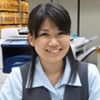
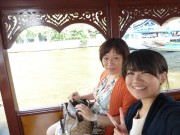
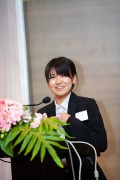
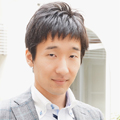
![(1)留学説明会でのプレゼンテーション[Presentation_at _the_Education_Fair]](https://www.oc.kyoto-u.ac.jp/overseas-centers/asean/wp-content/uploads/sites/2/2015/11/47413aa4c0503354b0e49537b7c67458-180x120.jpg)
![(4)ラマ8世橋を背に[In_Front_of Rama_VIII_Bridge]](https://www.oc.kyoto-u.ac.jp/overseas-centers/asean/wp-content/uploads/sites/2/2015/11/fbb3dc6cd2750aa221bd6dfae1cf5229-129x180.jpg)
![(3)屋台での食事[Meal_at_a Food_Stand]](https://www.oc.kyoto-u.ac.jp/overseas-centers/asean/wp-content/uploads/sites/2/2015/11/cebbd3a1fb7c84fb752cbc0d55ee47ef-120x180.jpg)
